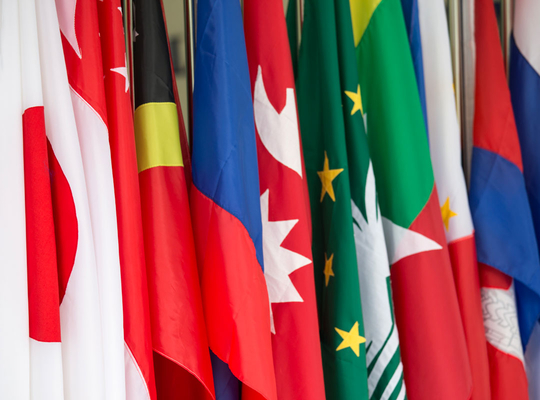You are here
Flanders wants strong and responsible trade policy, in and with Europe

The Court of Justice of the European Union has judged that the European Member States must all give their approval to conclude a European trade and investment treaty with Singapore. “A modern trade policy strengthens the European Union and the Member States alike. The binding opinion of the Court of Justice emphasises that the role of the individual Member States on trade must be fully respected,” reacts MEP Sander Loones with satisfaction.
With the Treaty of Lisbon, the power to conclude trade agreements was transferred from the Member States to the EU. Nevertheless, the agreements of today are not the same as the agreements of yesteryear: they are much broader and can also contain arrangements about matters that fall under the competence of the Member States and not the EU, such as environmental protection, public procurement and investment protection.
Role of the Member States strengthened
The opinion of the Court of Justice has a considerable impact on European trade policy. “From now on, the Member States will be involved in concluding trade agreements containing elements that fall under the powers of the Member States themselves. The European Commission has always been of the opinion that such treaties belonged to the exclusive competence of the EU and only had to be approved by the European Parliament and the European Ministers of Trade,” Sander Loones explains.
Adult attitude required
The question of course is whether there are sufficient guarantees that the Member States and their regions will also be able to demonstrate a greater sense of responsibility now that they are more involved in the process. Everyone still remembers last year when Wallonia - acting alone as a region - vetoed the CETA agreement between the European Union and Canada. The fear is that the same scenario could repeat itself when the Brexit trade treaties are due to be approved in 2019. Tens of thousands of jobs, including jobs in Flanders, could be threatened by such a scenario. For this reason, Flemish Minister-President Geert Bourgeois is advocating a transparent trade policy with two tiers. On the one hand, the EU must be able to conclude separate treaties covering purely trade aspects falling under competences that belong exclusively to the EU. On the other hand, Member States and federated entities must be able to decide whether to enter into mixed treaties with shared competences, such as investment protection.
Sander Loones also realises that the system must still be refined further so that all parties involved are steered towards a responsible trade policy. “Anyone refusing to take part in the decision process will no longer be able to block the others and will have to stand aside so that the others can nevertheless progress,” he concludes.

